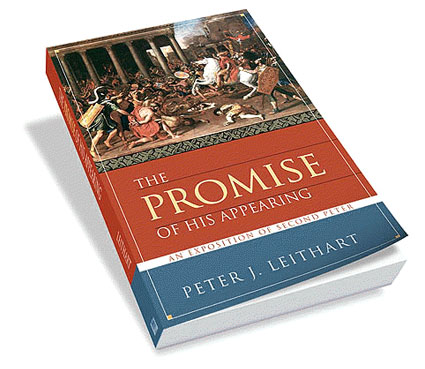Jan
25
2011

or Ulterior Motifs
Jesus’ reference to sun, moon and stars in Matthew 24 has nothing to do with the physical world, and everything to do with the microcosmic world of the Temple. Because of this, the Covenant Creationists think Genesis 1 is only about the Covenant with Adam, not about physical creation. They’re wrong, just as the literalists are wrong about Matthew 24 predicting the end of the world.
Continue reading
2 comments | tags: Baptism, Covenant Creationism, Creation Week, Dispensationalism, Genesis, Lampstand, Literary Structure, Matthew 24, Tabernacle, Table of Showbread | posted in Against Hyperpreterism, Bible Matrix, Biblical Theology, Creation, The Last Days
Jan
17
2011

or The Rapture is History
“And after my skin is destroyed, this I know, that in my flesh I shall see God.” Job 19:26
Full preterism leads logically to gnosticism. If death is already defeated, salvation has come to the world, and all is now perfect, then of necessity all three — death, salvation and perfection — have to be redefined. They are only Covenantal, “spiritual.” You can probably understand why doctrines like these don’t originate from the persecuted church. Some hope.
However, that said, I agree with 97.3963798475% of full preterism. Their take on the parousia texts is logical and contextual. Jesus actually did come back soon, as He promised, to rescue the persecuted firstfruits church. The textual ping-pong of the well-meaning partial preterists (who can’t agree between themselves on which parousia texts refer to the end of history) is a confusion of which our God could not possibly be the author. So what’s the answer?
Continue reading
28 comments | tags: Against Hyperpreterism, Covenant Theology, Daniel, David, Deuteronomy, Dispensationalism, Ezekiel, Ezra, Job, Leviticus, Paul, Resurrection, Saul, Tabernacle | posted in Against Hyperpreterism, Biblical Theology, The Last Days, The Restoration Era
Oct
11
2010

“There is a curse on Mankind.
We may as well be resigned.
To let the devil, the devil
take the spirit of man.”
War of the Worldviews
I first heard Jeff Wayne’s musical version of The War of the Worlds when I was 11. My brother and I and some cousins listened to it in a dark room. It was electric and terrifying. Hearing it again years later, the worldview behind the story is much more apparent. One song in particular lays it bare, The Spirit of Man.
[This post has been refined and included in Sweet Counsel: Essays to Brighten the Eyes.]
Continue reading
Comments Off | tags: Biblical worldview, Culture, Demons, Dispensationalism, Evolution, Music, Postmillennialism | posted in Apologetics, Creation
Feb
2
2010

41. The cities of the nations never fell in A.D. 70 (Rev. 16: 19).
This is a symbolic passage, but when we understand its nature, its message is astonishing. The reference to Jerusalem being divided into three parts alludes to Deuteronomy 19:3 concerning cities of refuge. There is also a “trinitarian” judgment in Ezekiel 5. Both are the outflow of the structure of the Tabernacle, which in turn images the pattern of heaven. This verse in Revelation 16 is, ironically, at the Tabernacle/Ascension step in this matrix pattern:
Continue reading
2 comments | tags: AD70, Dispensationalism, Ezekiel, Melchizedek, Revelation | posted in Biblical Theology, The Last Days, Totus Christus
Dec
12
2009
 An interesting excerpt from James Jordan’s review of Wayne House and Thomas Ice’s, Dominion Theology: Blessing or Curse?: An Analysis of Christian Reconstructionism
An interesting excerpt from James Jordan’s review of Wayne House and Thomas Ice’s, Dominion Theology: Blessing or Curse?: An Analysis of Christian Reconstructionism
The quietist is committed to inaction. The pietist, by way of contrast, is frequently active in social and charitable affairs, but what makes his position inadequate is that pietism is in general uninterested in social theory. (In general, pietist movements are not much interested in theology either.) There is no self-conscious reflection on the concerns of political philosophy in the broad sense. It is simply a matter of “doing good” here and there, without reflection. This is not bad, but it does not go far enough.
Continue reading
2 comments | tags: Dispensationalism, James Jordan, Philosophy, Pietism, Secular humanism, Theonomy | posted in Quotes
Dec
10
2009

Ending the False Dichotomy of Blood and Spirit
NOTE: THIS POST HAS BEEN REMIXED AND INCLUDED IN GOD’S KITCHEN.
The Old Testament is a bloody book. Beginning with Adam’s “dissection” to build Eve and the animals the Lord made into tunics, it culminates in Revelation with the massacre of saints under Herod/Nero (Revelation 14) and then the massacre of Jews under Vespasian and Titus.
Continue reading
2 comments | tags: Amillennialism, Church History, Dispensationalism, Jewish war, John Piper, Martyrdom, Nero, Postmillennialism, Revelation | posted in Biblical Theology, Quotes, The Last Days
Dec
7
2009

or Receiving the Implanted Word
Mary’s song, like most songs in the Bible, seemed to me to contain mostly extraneous material. My modern mind couldn’t relate her words to the version of Christianity I was familiar with. I guess that’s because it was a version bereft of much understanding of the Old Testament.
Mary’s song seems to follow the matrix pattern. As such, it is a new Creation, and a new Tabernacle, (John 1:14, “dwelt” is literally “tabernacled”). It is the liturgical response of the bride to the promise of Covenant succession – the Covenant succession. This new generation was also regeneration.
Continue reading
Comments Off | tags: Atonement, Azal, Bible Matrix, Christmas, Daniel, Dispensationalism, Feasts, Holy Place, Luke, Mary, Moses, Revelation | posted in Biblical Theology, The Last Days
Jul
27
2009

———————————————————————————
“…preterism is not merely a way of interpreting New Testament prophecy but also provides a framework for understanding New Testament theology as a whole.”
———————————————————————————
The Bible was written for us, not to us. This includes the New Testament. We have evangelicals who take both Old and New Testament prophecies concerning Israel and mistakenly apply them to modern Jews (dispensationalism). But then we also have evangelicals who think that the imminent predictions of judgment throughout the New Testament are still somehow “imminent.” This includes most conservative Christian theologians (even smart guys like D. A. Carson), who treat the epistles as though they were written to us. They make the same error as the dispensationalists, albeit on a smaller scale. This misreads the New Testament. It replaces interpretation with application, and unwittingly makes many verses unnecessarily mysterious to modern Christians. Continue reading
2 comments | tags: Dispensationalism, Hermeneutics, Old Testament, Peter Leithart, Revelation | posted in Against Hyperpreterism, Biblical Theology, The Last Days
Jul
27
2009
or Jesus and the Stickybeaks
John Barach writes:
In Mark 13:32, Jesus says, “Of that day and hour no one knows, not even the angels in heaven, nor the Son, but only the Father” (cf. Matt. 24:36). That’s somewhat puzzling. Is it a limitation on Jesus’ omniscience, as if God the Father knows things that God the Son doesn’t? That can’t be. So is it saying that Jesus as a man doesn’t know things that God the Son knows? Even so, that’s still puzzling.
Continue reading
1 comment | tags: Dispensationalism, John Barach | posted in Biblical Theology, The Last Days
Apr
27
2009
From John Barach’s blog:
The Fruit of Dispensationalism
In the Portland airport, on my way back home, I read a new book on eschatology by Auburn Avenue’s associate pastor, Duane Garner. Here are a few paragraphs to whet your appetite. In the context, Garner has been talking about Hal Lindsey’s recommendation that Christians retreat from society because things are going to get worse and worse until Jesus returns:
Continue reading
Comments Off | tags: Culture, Dispensationalism, Ethics, Postmillennialism | posted in The Last Days

































